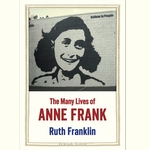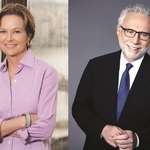The Jewish Enlightenment in the Era of Absolutism
With Elisheva Carlebach, Michah Gottlieb, and David Sorkin

- Date/Time
- –
- Format
- Online
- Admissions
- General: Free
As LBI's yearlong exploration of 1700 years of German-Jewish History concludes its chapter on the era of Absolutism (1648–1806), three scholars will discuss how the intellectual and social developments of the age impacted Jews, and how Jews contributed to those developments.
After the Peace of Westphalia in 1648, territorial states began to centralize power over the numerous small and fractious polities in German-speaking Europe, and they built bureaucracies that rationalized the relationship between the state and its subjects – including Jews. This held both the promise of greater toleration and inclusion, but also the threat of persecution by even more powerful despots.
In the same period, the ideals of the Enlightenment began to change ideas about the proper role of religion in society and the relationship of the individual to religion. The Jewish Enlightenment offered new answers to old questions about whether Jewishness was primarily a nationality or a religion, especially in the context of the Protestant conception of religion as a private matter of individual faith. The ways in which thinkers like Moses Mendelssohn theorized the complex relationship between individuals, religions, and the state paved the way for Jewish participation in secular German society, but they also have implications for our own diverse societies.
About the Panelists
Elisheva Carlebach, Salo Wittmayer Baron Professor of Jewish History, Culture, and Society
Elisheva Carlebach specializes in the cultural, intellectual, and religious history of the Jews in Early Modern Europe. Areas of particular interest include the intersection of Jewish and Christian culture and its effect on notions of tolerance, religious dissent, conversion, messianism, and communal governance. Her books include The Pursuit of Heresy (1990), awarded the National Jewish Book Award, Divided Souls: Converts from Judaism in Early Modern Germany (2000) and Palaces of Time: Jewish Calendar and Culture in Early Modern Europe (2011), winner of the Association for Jewish Studies Schnitzer Prize.
Michah Gottlieb, Associate Professor of Hebrew and Judaic Studies, New York University
Michah Gottlieb’s main field of research is modern Jewish thought and philosophy. His interests include: the faith-reason debate and its political ramifications, modern Bible translation and interpretation, ethical education and character development, and bourgeois piety. His books include: Faith and Freedom: Moses Mendelssohn’s Theological Political Thought (2011); Faith, Reason, Politics: Essays on the History of Jewish Thought (2013) and most recently: The Jewish Reformation: Bible Translation and Middle-Class German Judaism as Spiritual Enterprise (2021).
David J. Sorkin, Professor of Modern Jewish History, Yale University
David Sorkin’s work is situated at the intersection of Jewish history and European history since the 16th century. His first book, The Transformation of German Jewry, 1780–1840 (1987), examined the formation of Jewish culture in the German states, which he came to understand as a “subculture.” Sorkin's latest book is Jewish Emancipation: A History Across Five Centuries (2019), in which he argues that the attainment of civil and political rights or equality is the principal event of modern Jewish history. He is currently at work on a study of the practice of Jewish politics since the sixteenth century.

